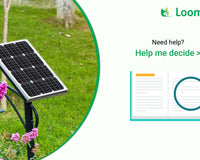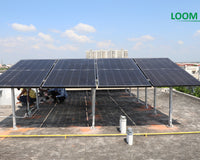Weather significantly impacts the performance of solar panels. When it's sunny, solar panels do great because they get lots of sunlight to make electricity. But when clouds cover the sky, solar panels don't work as well. Clouds block some of the sunlight, so the panels can't make as much electricity. Sunny days are like a party for solar panels, but cloudy days make it harder for them to do their job.
Solar panels change sunlight into electricity using special cells. When clouds cover the sky, not as much sunlight reaches the panels, so they can't make as much electricity. If the clouds are really thick, this problem gets worse. Rain and snow can also be a problem because they can block the sunlight or even harm the panels. So, clouds, rain, and snow can make solar panels work less well.
During cloudy days, Bi facial solar panels still generate some electricity, but it's less than on clear days. Fortunately, modern panels are designed to capture even diffused sunlight to some extent, so they remain somewhat productive in overcast conditions. Solar panels are affected by temperature as well. Extreme heat can reduce efficiency, while cold weather can slightly improve performance.
In summary, weather plays a crucial role in solar panel performance. Sunny days are ideal, while cloudy days result in reduced power output. Despite this, solar panels continue to contribute to energy production even during less favorable weather, showcasing their resilience and potential for sustainable energy generation.












